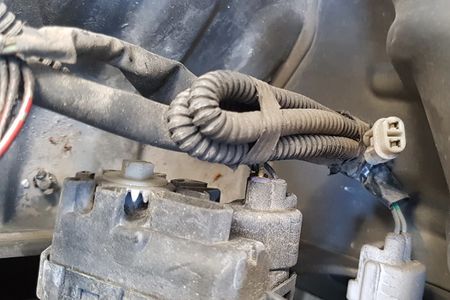![]() The content of any article might be expanded / improved in the future - revisit it sometimes.
The content of any article might be expanded / improved in the future - revisit it sometimes.
![]() Seen a mistake? Know something that isn't written? Edit and change this article yourself!
Seen a mistake? Know something that isn't written? Edit and change this article yourself!
![]() Some images in the article (if present) can be enlarged by clicking on them.
Some images in the article (if present) can be enlarged by clicking on them.
![]() This article is just an embryo. It is an idea for someone to "pick up" onto and to expand the article further.
This article is just an embryo. It is an idea for someone to "pick up" onto and to expand the article further.
Introduction
There are various electrical connectors inside Jimnys in various points, mostly behind / below the dash board, in the engine bay and behind / below the rear vertical lamps.
Those are various types of special latching (and in some cases waterproof) automotive electrical connectors.
Connector types
For Jimny 3, Suzuki uses electrical connectors from Japanese manufacturer Sumitomo.
Sumitomo connectors (or their Chinese copies) can even be bought from places like Aliexpress.
Some more info on Sumitomo connectors:
Two connectors which have been verified in practice are:
- Connector model MT 090, 2-pin edition;
- Female part of the connector is used on front fog lamp wiring harness in the engine bay (located behind / below the head lamps).
- Male part of the connector is found on the front fog lamps model P.N. 35500-74F50 and also on the "engine bay side" end of wiring harnesses P.N. 36813-84A00 and P.N. 36813-57M00, which connect fog lamp models P.N. 35500-63J0x to the wiring in the engine bay;
- Connector model MT 090, 4-pin edition;
- Used on rear bumper lamp cluster wiring harness (located behind / below the rear left vertical lamp).
- Enables the wiring for the lamp clusters on the rear bumper to be separated from the vehicle when removing the rear bumper, so that the lamps and part of the wiring can stay in place on the bumper.
- Used on rear bumper lamp cluster wiring harness (located behind / below the rear left vertical lamp).
- Female and male parts of 2-pin edition of connector Sumitomo MT 090
Page last edited on 6/12/2019 by user Bosanek


